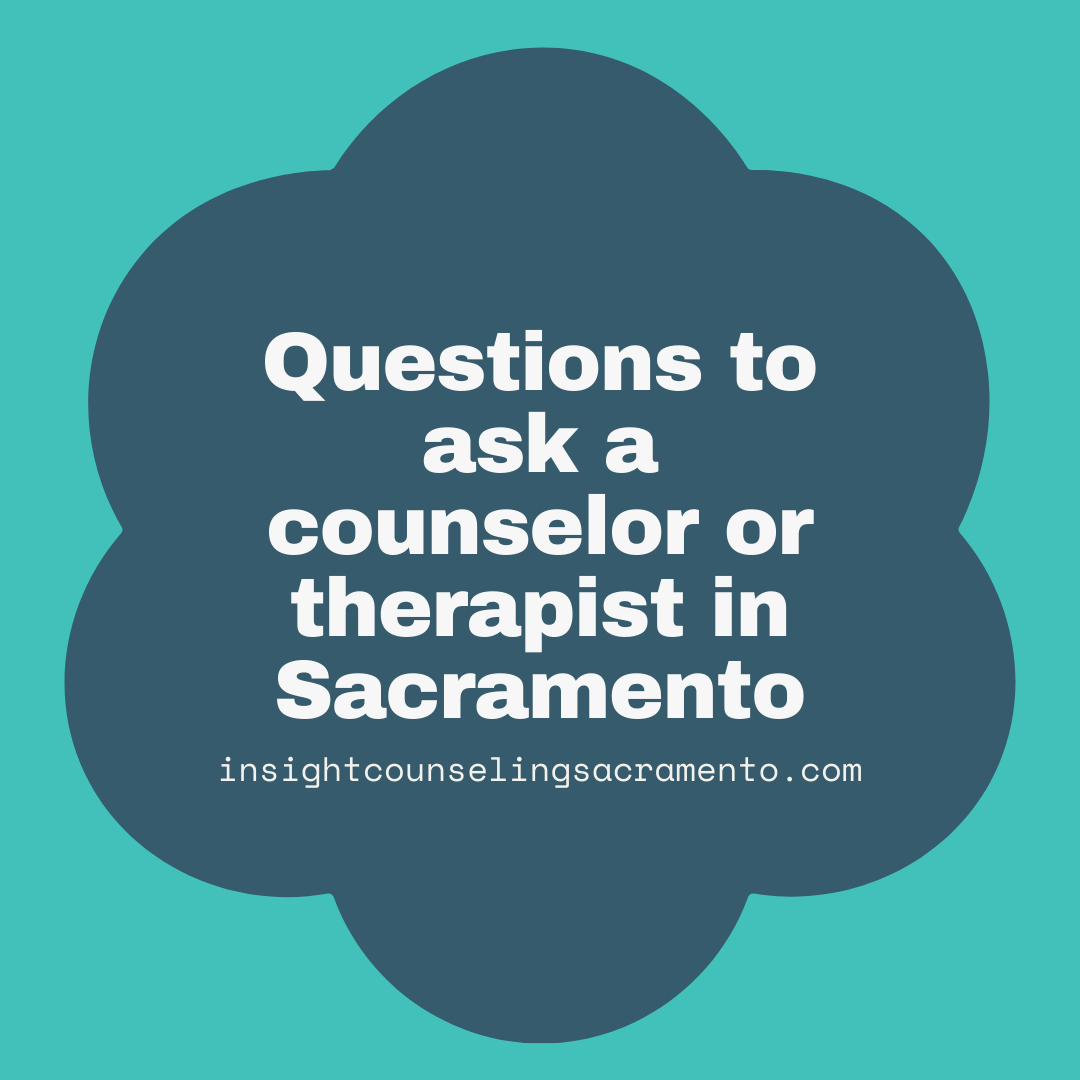
10 Myths About Therapy - Lessons from my Sacramento Counseling Office
Myths and misconceptions about what therapy is and how it can help may potentially prevent individuals from accessing life-changing support. As a therapist in Sacramento, my goal in this article is to dispel these misunderstandings and shed light on the reality of therapy, enabling you to make informed decisions about your mental well-being. Seeking therapy has become increasingly common as people recognize the importance of their mental health in overall well-being. Even the word therapy has a stigma attached to it, and some people prefer to use counseling instead. I use the terms interchangeably in this article.

Questions to ask a counselor, psychologist, or therapist in Sacramento
Finding a therapist in Sacramento can feel really overwhelming, so here’s some tips on what questions to ask to help you make the changes you want in your life.
What kinds of issues and people have the best therapy outcomes with you? Why?
This question can help the therapist explain their unique knowledge base and abilities, how they see their role, and their personality they bring to the appointments. It’s also helpful for you to know what the therapist expects of you during therapy sessions.

What you Should Know about Mood Swings
Having mood swings doesn't mean you're a failure or that depression, mania or bipolar disorder has "won." It means you need to reduce stressors and increase self-care. Adjusting to mood swings in a healthy way is one of the most difficult skills for people who are living with bipolar or any mood disorder to master. I specialize in helping people increase self-awareness, create a mood swing response plan, and gain understanding of how to move forward using healthy coping skills with self-confidence.

Empower Yourself by Learning to Conquer Social Anxiety
The sense of feeling separate from your body along with physical symptoms like tingling fingers may be caused by stress and anxiety, which effects you physiologically as well as emotionally. If you avoid speaking up at work meetings, skip going to social events, or spend a lot of time worrying about what you're going to say or how you look or sound, you may have social anxiety. You can get control back by understanding what creates these physical and emotional symptoms, and implementing effective coping skills.